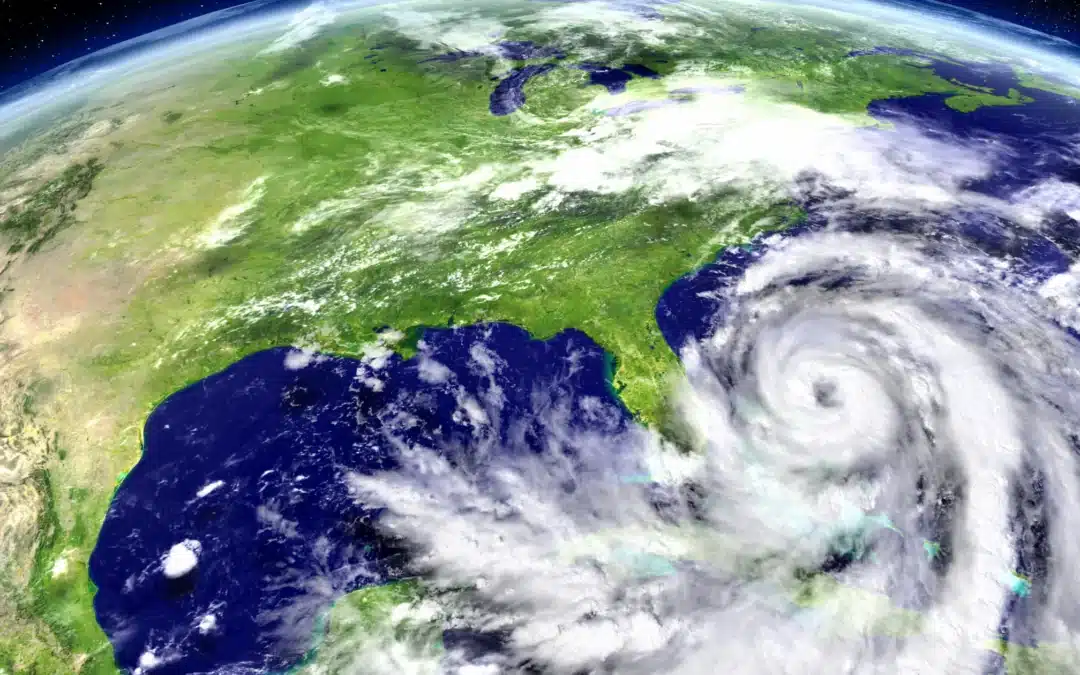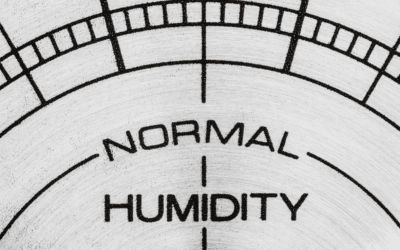Hurricane Season in Coastal Virginia
The hurricane season in the Atlantic region is six months long, beginning June 1st and ending November 30th, September being the most active month. The past few years have been relatively calm for Hampton Roads when it comes to Hurricanes, but that may not be the case this year.
Hurricane Preparedness Guide
We’re sharing our top tips for hurricane preparedness to keep you and your family safe this Hurricane Season.
2024 Predicted To Be An Active Hurricane Season
According to researchers at North Carolina State University, 2024 is predicted to be an active hurricane season, with 15-20 named storms and 10-12 anticipated to turn into hurricanes, the yearly average is 6 hurricanes.
Coastal Virginia is the state’s area most prone to hurricanes and tropical storms. Hurricanes and tropical storms impact Hampton Roads with their strong winds, rains, and storm surges. Tropical storms have wind speeds of 39 – 74 miles per hour. While hurricanes have wind speeds clocking at 75 miles per hour and greater. These high winds cause damage to trees, siding and guttering, and extensive damage to power lines and poles. It is not unusual to have power outages that last several days in Hampton Roads when a major storm hits our area.
Make A Hurricane Preparedness Plan
Thankfully tropical storms and hurricanes are not unexpected weather events like earthquakes and tornados. Radar and other weather tracking systems monitor storms when they are far from landfall. As severe storms progress from tropical to hurricane levels, potentially impacted areas are alerted. Stay informed and make necessary preparations to brace for the storm for your family and property.
Make A Kit
To ensure the safety of your home and family during hurricane season, it’s crucial to prepare for a hurricane in advance. In Hampton Roads, where major storms are a real possibility, every household should have an emergency kit ready. Hurricanes and tropical storms could create a loss of power or cut off your water supply. Flooding and high winds may cause damage to your vehicle or roadways eliminating your ability to drive or leave your home.
The Center for Disease Control and Prevention recommends two weeks’ worth of supplies. Use the following list of supplies to get started on your hurricane preparedness emergency kit.
-
- Safe water, for both drinking and sanitation, one gallon per person per day
- Non-perishable food items and a manual can-opener
- Baby food, formula, diapers if needed
- Any prescription medicines
- First aid kit
- Battery-powered radio
- Flashlights
-
- Extra batteries
- Portable chargers for your digital devices
- Towelettes, wipes, garbage bags
- Soap/hand sanitizer
- Wrench/pliers to turn off utilities
- Copies of important documents (especially property insurance) in a water-proof storage
-
- Safe water, for both drinking and sanitation, one gallon per person per day
- Non-perishable food items and a manual can-opener
- Baby food, formula, diapers if needed
- Any prescription medicines
- First aid kit
- Battery-powered radio
- Flashlights
- Extra batteries
- Portable chargers for your digital devices
- Towelettes, wipes, garbage bags
- Soap/hand sanitizer
- Wrench/pliers to turn off utilities
- Copies of important documents (especially property insurance) in a water-proof storage
Prepare Your Home
High winds, storm surges, and flooding pose major threats to your home during hurricane season. Hours, days, and even weeks prior to a hurricane it’s important to get your home ready.
Secure Outdoor Items
A day or so prior to a hurricane’s impact, we sure to move or secure any items in your yard, on your deck, or on your porch. Items include, but are not limited to, outdoor furniture, bikes, garbage cans, decorations, and potted plants.
Anticipate Tree Damage and Heavy Rainfall
High winds cause limbs and trees to fall, even outside of Hurricane Season, causing damage to your home and power outages. You can reduce these threats by ensuring limbs are trimmed back from rooflines and power lines.
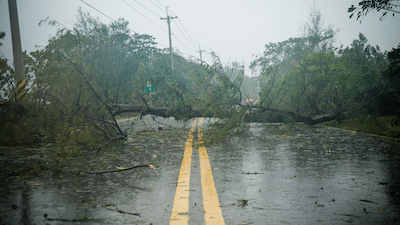
Heavy rainfall during storms causes improperly maintained rain gutters to become overwhelmed and fail. Take these steps to ensure your gutters are prepared for the heavy rainfall hurricanes are known for.
-
- Clean debris from gutters
- Secure gutters to avoid sagging. Be sure to check that gutter nails are flush with the gutters and not sticking out
- Extend downspouts to direct water away from your home’s foundation
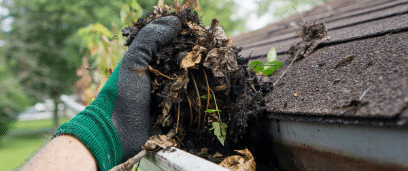
Know Your Zone
Surrounded by water, Hampton Roads often faces issues with flooding when tropical storms and hurricanes head our way. Not only is our coastal community impacted by the torrential rainfall, but storm surges often flood neighborhoods in our area that are below sea level. When an impending storm is nearing Hampton Roads, local authorities will announce flood-related evacuation precautions based on flood zones. Know your home’s flood zone to determine if your home is in a zone where evacuation has been issued.
Plan For Pets
As you prepare for hurricane season in Hampton Roads, it’s important to keep in mind the safety of your pets as well. When a hurricane is approaching, it’s essential to have specific hurricane tips for pets in place. Make sure to plan for their care during the storm and have a pet-friendly place to go if you need to evacuate or seek shelter. This safe place should be somewhere your pet can stay while you’re away.
In addition to your family’s hurricane preparedness kit, be sure to create a kit for your pets too. Your pet emergency kit should include the following:
-
- Supply of pet food for at least five days
- Safe drinking water
- Medication, if necessary
- Waste bags
- Leash / tags
- Pet toys for entertainment
- Copies of important documents such as proof of ownership, and shot records in water-proof storage

Prepare For Power Outages With A Home Standby Generator
One way you can keep the lights on at your home when your neighborhood has lost power is with a home standby generator. The purpose of a home standby or whole-home generator is to provide your home backup power when your home’s prime power source is lost.
Standby generators run on either natural gas or liquid propane. A home standby generator is a permanent fixture on the exterior of your home, just like a central air conditioner.
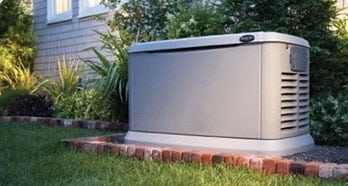
These generators can be set up with an automatic transfer switch. This switch recognizes when the prime power source from your home is lost and automatically transfers to the generator for power. Generators can be chosen to power your entire home or to power select essential items.
22KW Honeywell Standby Generator with Automatic Transfer Switch
IT'S TIME for some peace of mind! A home standby generator keeps your entire home running until power is restored.
Limited time offer. Offer subject to change. Call for pricing and details.
Wrap-Up
As we head into an active hurricane season, it’s important to take steps to prepare your home and family for potential risks such as high winds, storm surges, power outages, and flooding. One of the best ways to stay informed is to monitor forming storms through reliable sources like the National Hurricane Center and the National Weather Service. By following these hurricane safety tips, you can help ensure the safety of yourself, your loved ones, and even your pets.
[Download] Hurricane Preparedness Checklist
This Hurricane Preparedness Guide is a printable version of the items we covered above. It has checkboxes, so you can check things off as you’ve completed them, and even has a spot to take notes. Add it to your household notebook, so it’ll be easy to reference.



